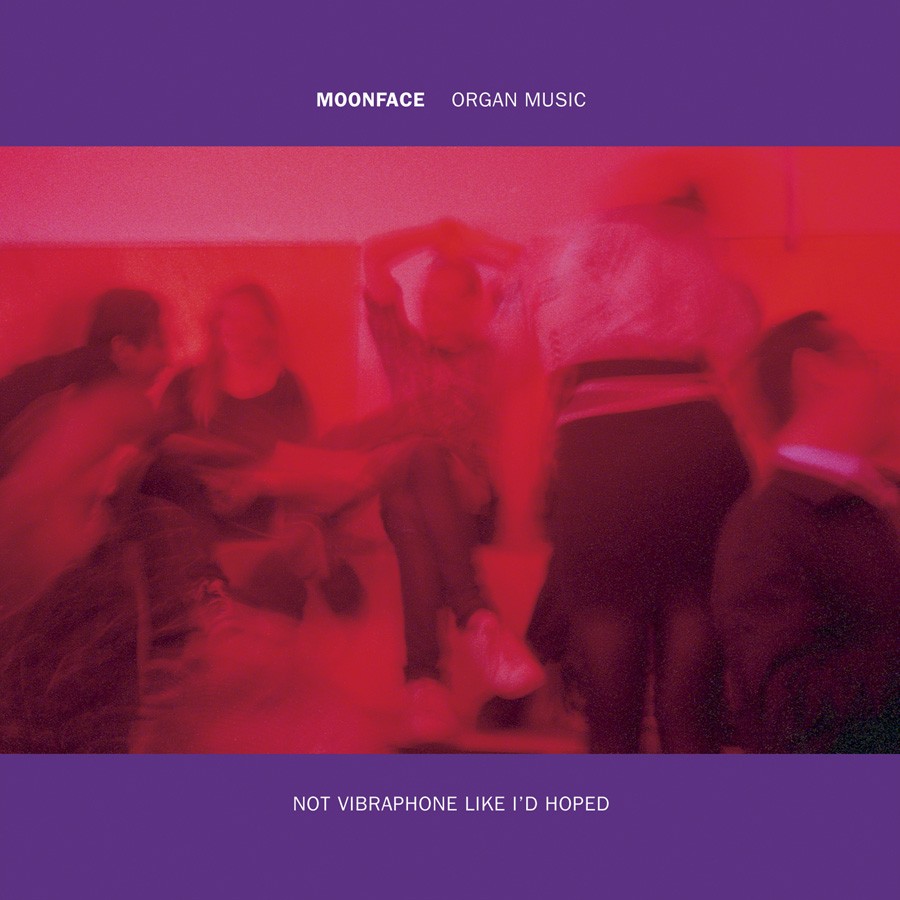âÄúOrgan Music Not Vibraphone Like IâÄôd HopedâÄù
Artist: Moonface
Label: Jagjaguwar Records
Spencer Krug is cut from a different cloth than other indie-rock powerhouses. ItâÄôs not just the prism of weirdness that his multiple projects have demonstrated âÄî itâÄôs how he executes this weirdness with such earnestness and confidence.
From the accessible guitar-and-kit rock of the initially lauded and now defunct Wolf Parade to the rococo whimsy of his Sunset Rubdown moniker, the Canadian musician has not only donned a musical rack of hats through the last decade; heâÄôs worn them very well.
Amid these masquerade patterns, the 34-year-old Krug released his first full-length under the namesake Moonface âÄî one that Krug describes as the âÄúlast moniker I have left to exploitâÄù in the albumâÄôs initial press release. While Krug may be seeking a flexible haven with the expectedly-disorienting atmosphere of âÄúOrgan Music Not Vibraphone Like IâÄôd Hoped,âÄù the question remains whether or not Krug has reached a point of reinvention for the simple sake of the word itself.

The recordâÄôs name is a self-referential jab at KrugâÄôs inability to creatively settle. The first Moonface release came last February in the form of the twenty-minute EP, âÄúDreamland EP: Marimbas and Shit-Drums.âÄù The bulk of the releaseâÄôs sonic description can be found right in the title. The creatively calculated Krug now seems a bit more confronted with his turning mind on âÄúOrgan Music Not Vibraphone Like IâÄôd Hoped.âÄù
Across six songs âÄî not one shorter than six minutes âÄî Krug plays with the same contrasting percussive realms as his âÄúDreamland EP.âÄù The marimba has been traded for vibrating organ chords and the kit drums for throbbing electronic blips. On tracks like âÄúReturn to the Violence of the Ocean Floor,âÄù Krug douses his creative struggles in lyrical surrealism. Since this albumâÄôs aesthetic character makes KrugâÄôs least approachable release, the opaque approach to his conflicts still resonates pretty clearly.
KrugâÄôs nervous playfulness aside, his knack for teasing out instrumental timbre has always been the foundation of his work. For all the modernity that his hiccupping vocals and electric tweaks bring, the manual tools he deploys leave many notes and harmonies resonating like relics. When he thematically mirrors these emotive resonances, his work shines the brightest. The album single, âÄúFast Peter,âÄù a stream of dizzying loops and contemporary lovelorn imagery (e.g., âÄúthey only talk on their computersâÄù) is an unquestionable standout.
ItâÄôs not common for an artistâÄôs most distancing work to function as his most personal endeavor. But such is the weird turning mind of Spencer Krug. The first proper Moonface album may be littered with creative haze, but thatâÄôs what keeps it engrossing.
3/4 stars
âÄúSky Full of HolesâÄù
Artist: Fountains of Wayne
Label: Yep Roc Records
Generation Y doesnâÄôt know NYC pop rockers Fountains of Wayne for who they really are. The group will probably never be able to crawl from beneath the weight of their more commonly referred to title, âÄúThe guys who sang that âÄòStacyâÄôs MomâÄô song.âÄù
Never mind that their 1996 self-titled debut was one of the most critically lauded pop-rock offerings of the decade. Or that bassist and principle songwriter Adam Schlesinger wrote the heft of the songs âÄî title track included âÄî for Tom HanksâÄô ode to 60s pop, âÄúThat Thing You Do!âÄù The latter example may be the best summation of their five-album career. âÄúWelcome Interstate Managers,âÄù the 2003 release that was home to their massive MILF-focused hit, was a pastiche of hook-filled structure and Americana lyricism.
On their latest release, âÄúSky Full of Holes,âÄù the group continues to traverse similar planes of easily digestible radio rock. For the same reasons that âÄúStacyâÄôs MomâÄù became infectious, thereâÄôs no shame in loving simple pop songs.
To be fair, Schlesinger and singer/guitarist Chris Collingwood were never aiming their thematic sights toward the teenage market. Their listless yuppie lyricism carries greater credence with the middle-aged or at least youthful cynics. But Schlesinger and CollingwoodâÄôs brand modern-day melancholy becomes awash with comfort through their ability to craft seamless song structure. On tracks like âÄúRichie and Ruben,âÄù a tale of two laughably awful entrepreneurs, the band succeeds on gentle, percussively guided structure âÄî one that allows The ZombiesâÄô influence to resonate clear as crystal.
The bulk of the record surrounds less gimmicky subject matter. In fact, the newfound undercurrent of West Coast pop influence keeps the talking points appropriately vague. âÄúA Dip in the OceanâÄù moves across quick synaptic flashes from a 1998 beach trip. Even here, the memories have dents of imperfection with lines like, âÄúGet a load of the light and the trees/ and the sweet decay in the maritime breeze.âÄù ItâÄôs the brand of languid optimism that Fountains of Wayne do best.
ItâÄôs just a bit unfortunate that the groupâÄôs latest effort is somewhat stylistically stagnant. After developing a commendable penchant for honky-tonk revivalism over the last two albums, its prevalence on âÄúSky Full of HolesâÄù feels a bit worn out. The steel strings seem poised for retirement by the time the second-to-last track, âÄúFirelight Waltz,âÄù begins. The stylistic favoritism is also just a bit too daunting since it stifles the actâÄôs strong suit. Fountains of Wayne play the strongest when theyâÄôre combating the mundane with the encouraging. âÄúSky Full of HolesâÄù wades in too much burden without the alleviating bliss.
2/4 stars









